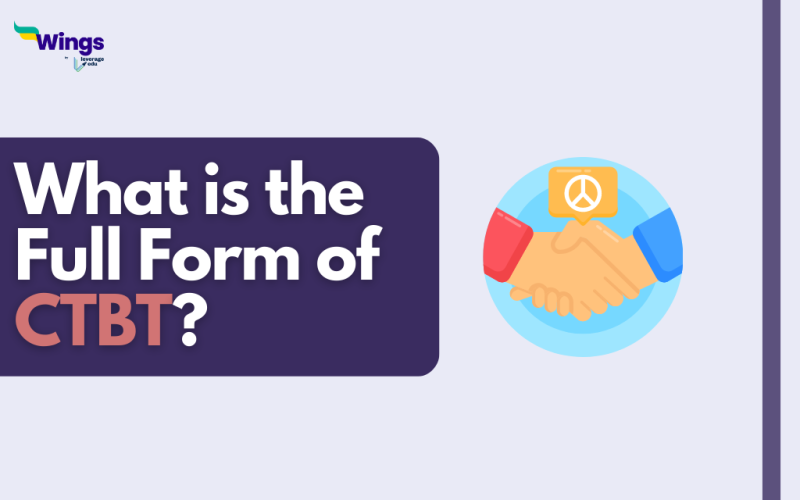The CTBT full form is the Comprehensive Nuclear Test Ban Treaty, a multilateral treaty to deter the use of nuclear weapons by any nation which has agreed to the terms of this ban. Countries which sign CTBT recognise the provisions of this treaty and refuse to use nuclear weapons, whereas, nations which ratify CTBT formally accept the provisions of this contract, owing to which the treaty becomes legally binding on the government of the ratifying countries. Comprehensive Nuclear Test Ban Treaty is signed by a senior federal government official of a nation and is ratified by the Parliament of a country which includes the clauses of this contract in its legislation.
History of CTBT
Table of Contents
Here is a brief history of the Comprehensive Nuclear Test Ban Treaty:
- The foundation of CTBT was laid down in 1945, after the demolition of Hiroshima and Nagasaki in World War II by nuclear weapons.
- The precursor to this treaty is the Partial Test Ban Treaty (PTBT), which was adopted in 1963.
- The CTBT was adopted in 1996 by the United Nations General Assembly (UNGA) with more than two-thirds of the majority.
- As of 2022, 166 countries have ratified the treaty. The treaty will come into effect after ratification from all specified nations.
- The treaty is yet to be signed and ratified by India, Pakistan, and North Korea.
Global Impact of CTBT
The Comprehensive Nuclear Test Ban Treaty has played a vital role in prolonging peace in hostile situations between nations at war. As a majority of United Nations (UN) member nations have ratified this treaty, they have agreed to halt the creation of new nuclear weapons. By preventing nuclear wars, CTBT has impacted the world in the following manner:
- Reducing human suffering, which can be caused due to radiation emitted from nuclear weapons.
- Prevention of ecological destruction, which is inevitable in nuclear wars. Nuclear materials radiate harmful chemicals that have long-lasting implications on flora and fauna and the atmosphere.
- As the treaty ensures the use of nuclear material for peaceful purposes, it is being used to produce electricity.
Also Read: Nuclear Engineering Course: Universities and Careers
This was all about CTBT full form. Visit our Full Form Page to discover more intriguing articles about full forms. You can also check out the consolidated 300+ full forms list!
 One app for all your study abroad needs
One app for all your study abroad needs













